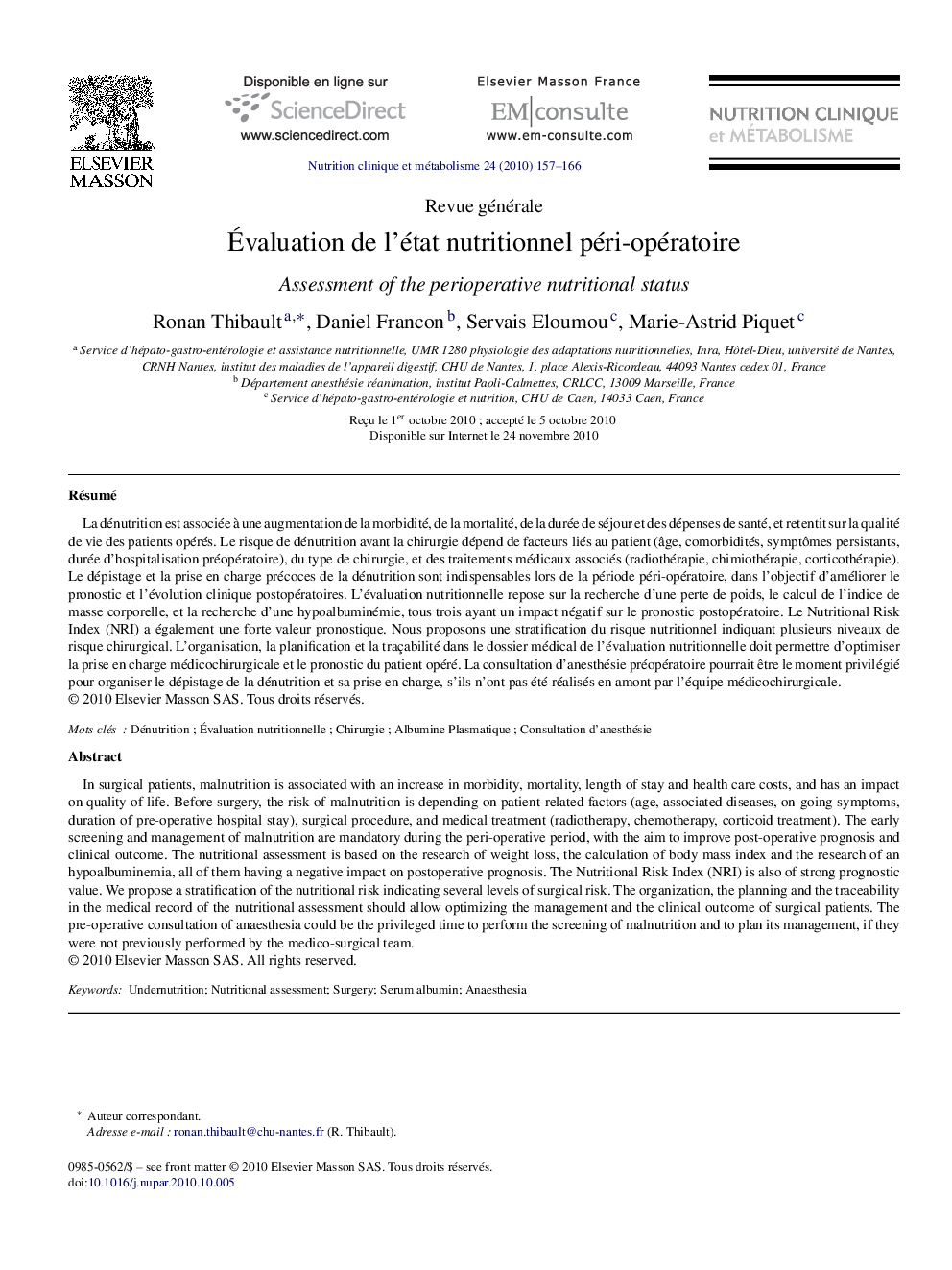| Article ID | Journal | Published Year | Pages | File Type |
|---|---|---|---|---|
| 2688800 | Nutrition Clinique et Métabolisme | 2010 | 10 Pages |
RésuméLa dénutrition est associée à une augmentation de la morbidité, de la mortalité, de la durée de séjour et des dépenses de santé, et retentit sur la qualité de vie des patients opérés. Le risque de dénutrition avant la chirurgie dépend de facteurs liés au patient (âge, comorbidités, symptômes persistants, durée d’hospitalisation préopératoire), du type de chirurgie, et des traitements médicaux associés (radiothérapie, chimiothérapie, corticothérapie). Le dépistage et la prise en charge précoces de la dénutrition sont indispensables lors de la période péri-opératoire, dans l’objectif d’améliorer le pronostic et l’évolution clinique postopératoires. L’évaluation nutritionnelle repose sur la recherche d’une perte de poids, le calcul de l’indice de masse corporelle, et la recherche d’une hypoalbuminémie, tous trois ayant un impact négatif sur le pronostic postopératoire. Le Nutritional Risk Index (NRI) a également une forte valeur pronostique. Nous proposons une stratification du risque nutritionnel indiquant plusieurs niveaux de risque chirurgical. L’organisation, la planification et la traçabilité dans le dossier médical de l’évaluation nutritionnelle doit permettre d’optimiser la prise en charge médicochirurgicale et le pronostic du patient opéré. La consultation d’anesthésie préopératoire pourrait être le moment privilégié pour organiser le dépistage de la dénutrition et sa prise en charge, s’ils n’ont pas été réalisés en amont par l’équipe médicochirurgicale.
In surgical patients, malnutrition is associated with an increase in morbidity, mortality, length of stay and health care costs, and has an impact on quality of life. Before surgery, the risk of malnutrition is depending on patient-related factors (age, associated diseases, on-going symptoms, duration of pre-operative hospital stay), surgical procedure, and medical treatment (radiotherapy, chemotherapy, corticoid treatment). The early screening and management of malnutrition are mandatory during the peri-operative period, with the aim to improve post-operative prognosis and clinical outcome. The nutritional assessment is based on the research of weight loss, the calculation of body mass index and the research of an hypoalbuminemia, all of them having a negative impact on postoperative prognosis. The Nutritional Risk Index (NRI) is also of strong prognostic value. We propose a stratification of the nutritional risk indicating several levels of surgical risk. The organization, the planning and the traceability in the medical record of the nutritional assessment should allow optimizing the management and the clinical outcome of surgical patients. The pre-operative consultation of anaesthesia could be the privileged time to perform the screening of malnutrition and to plan its management, if they were not previously performed by the medico-surgical team.
